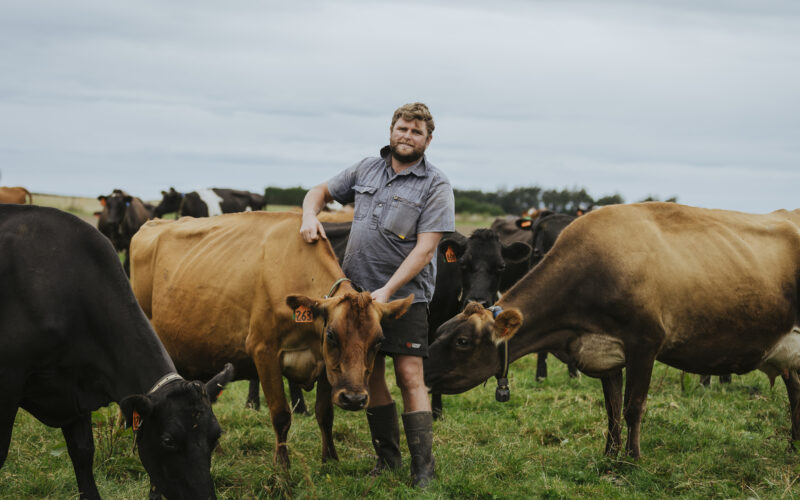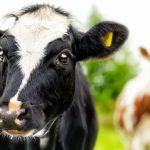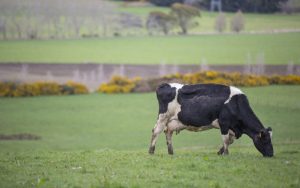
Survey reveals a net 23% of farmers expect economic conditions to improve in the next year.
Higher product prices have transformed farmer confidence, which a Federated Farmers survey says has reached a 10-year high.
South Otago sheep and beef farmer Logan Wallace said after a miserable spring in the south, lamb prices are $25/head higher than last year, ewe prices are double and beef up to $1.50/kg better.
Wallace said low interest rates and inflation have contributed to that sense of positivity, although many farmers are still catching up after a difficult couple of years.
Inflation for agriculture has dropped from 16.3% in 2022-23 to 1.2% in the year to the end of March 2024, and this week the Reserve Bank lowered the official cash rate by 50 basis points to 3.75%, which prompted banks to lower interest rates.
The federation’s January Farm Confidence Survey showed farmer confidence in economic conditions surging from negative 66% in July 2024 to a net positive score of 2%.
A net 23% of farmers expect economic conditions to improve in the next year, the highest level since January 2014, and 54% expect to make a profit, double the number of the last survey six months ago.
In last July’s survey, dairy was the only sector expecting to be profitable, but in this survey all sectors were positive with 31% expecting profitability to improve in the coming year.
Federated Farmers president Wayne Langford said despite confidence being at its highest point in more than a decade, it’s still only just in the positive.
He attributed the transformation to falling interest rates, rising incomes and more farming-friendly rules.
“I’ve definitely noticed a significant shift in the mood of rural New Zealand. Farmers are feeling a lot more positive,” he said.
The past few years have been dominated by falling incomes, rising costs and interest rates leading to record low confidence, but the latest survey shows a sector experiencing some relief.
Langford said cost pressures persist, with insurance premiums rising 11%, reflecting increased climate-related risks, but falling costs for livestock purchases, fertiliser and seeds provide some relief.
Manawatū dairy and beef farmer Mat Hocken said while milk prices have been favourable for a few years, high costs for fuel, freight and shipping seem to be bedded in.
Rangitikei farmer William Morrison said his mood has improved given lamb and beef prices are significantly higher than last year.
“I’m a lot happier but there are still a lot of challenges ahead.”
Morrison said he is not getting carried away, remaining focused on day-to-day management and addressing the lingering challenges from the last few years.
He is also aware NZ could be caught up in global economic and trade upheaval.
Southland dairy farmer Luke Templeton said a $10/kg/MS payout has given farmers certainty, especially after a difficult spring impacted summer crops, causing some farmers to buy in feed.
Stable prices and easing regulatory requirements have added to that confidence but Templeton said that could shift should there be new regulations or soaring costs.
The six-monthly survey canvassed the views of 779 farmers.
It revealed 16% of farmers expect production to improve in the next year, 23% to increase spending, up from minus 3%, and 41% to reduce debt, up from 23% in the previous survey.
Recruiting staff remains a challenge with 16% having difficulty, though the survey showed this was the least difficult period to find workers since 2012.
The respondents top concerns were regulation and compliance costs, debt, interest and banks and input costs.
For the previous two surveys debt, interest and banks were the top concern and regulatory and compliance costs the second.
Climate change policy and the emissions trading scheme ranked fourth in this survey, up from seventh last July.
Farmer priorities for the government were the economy and business environment, fiscal policy, and reducing regulatory burdens.
Those concerns were almost identical to last July, with the only difference supporting agriculture and exports, which ranked fourth in this survey, switching places with monetary policy, which held that spot in July.
You can now read the most important #news on #eDairyNews #Whatsapp channels!!!
🇺🇸 eDairy News INGLÊS: https://whatsapp.com/channel/0029VaKsjzGDTkJyIN6hcP1K

























